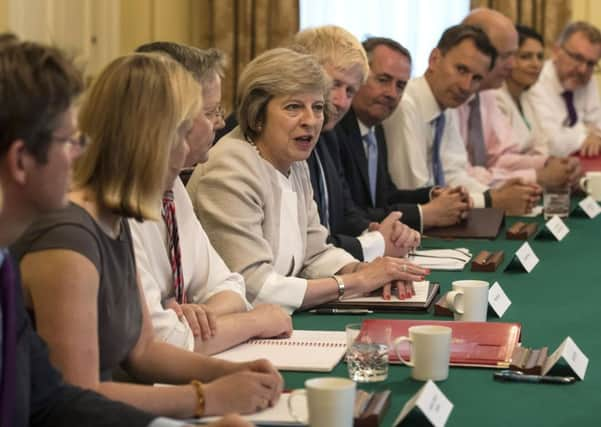YP Comment: Power to the regions '“ Theresa May. North commitment undiluted


The Shadow Home Secretary was the first to complain that the Northern Powerhouse was a Tory gimmick. Yet, now that Theresa May is looking at developing the concept of a British Powerhouse, he’s touring the TV studios and accusing the new PM of ‘betrayal’. What is it?
The plain fact of the matter is that successive governments, both Tory and the last Labour administration which featured Mr Burnham, have presided over a widening of the North-South divide and it is going to take years, perhaps decades, to tilt the economy back in favour of Yorkshire and neighbouring regions.
Advertisement
Hide AdAdvertisement
Hide AdHowever it had also become abundantly clear that the Northern Powerhouse policy agenda needed to be reconfigured, and relaunched, following a succession of decisions and policy u-turns, like the proposed closure of the Department of Business regional office in Sheffield. It had become discredited that it was being mocked as the ‘Northern poor house’.
In this regard, Mrs May is being pragmatic – Brexit depends on regional economies across Britain maximising their potential and the North will be integral to this. To her credit, the new Tory leader accepts this. She told The Yorkshire Post earlier this week that the Government has much “more to do” in Yorkshire and she has tasked Middlesbrough-born Greg Clark, the new Business Secretary, with making sure that “cities outside of London” become bigger drivers of growth.
Contrary to Mr Burnham’s assertion, the intention is to strength the regions rather than weaken them and Mrs May’s new strategy is awaited with interested. After all, policies which deliver lasting change are more important, and offer far more potential for lasting growth, than well-meaning soundbites and slogans which lack firm foundations.
What price loyalty?
WHAT price loyalty? Ofgem’s ability to be an effective energy regulator, standing up for consumers and the public interest, is called into question by its latest findings into this troubled sector – and the continuing failure of the ‘Big Six’ suppliers to offer the most competitive tariffs to their customers as a matter of routine.
Advertisement
Hide AdAdvertisement
Hide AdOfgem’s fundamental mistake is an arrogant assumption that all households are consumer-savvy and have the time, inclination and know-how to shop around for the best deals on a regular basis.
They do not.
Some, like the elderly or rural residents, don’t have access to the internet where the best deals can be sourced. Some are still dependent on pre-payment meters which will now be the subject of a price camp to protect four million ‘vulnerable’ customers. And some simply don’t understand the jargon or, more crucially, the small-print.
But it’s more profound than this. It’s about how suppliers inter-act with their customers. Many private firms, particularly those independent high street shops and small traders which are the backbone of the economy, place a premium on loyalty and do try to reward longstanding support wherever possible. However the energy industry appears to be the polar opposite by keeping households in the dark about the most suitable deals. In fact, it appears to go out of its way to penalise those people who expect to be able to trust their gas and electricity supplier at all times, a very un-British way of doing business. Until this mindset changes, consumer confidence will remain chilly at best.
Salary scrutiny
INEVITBALY the first ever ‘Nanny State Rich List’ will polarise opinion. Some will accuse the TaxPayers’ Alliance of mischief-making, and denigrating public sector bosses working tirelessly to encourage people to lead healthier lifestyles so they do not become a burden to the NHS, while others will say the findings reveal a bloated bureaucracy which needs to be dismantled.
Advertisement
Hide AdAdvertisement
Hide AdHowever, with more than 325 public health bosses earning more than £100,000 in 2014-15, it is important that the NHS trusts and organisations concerned do explain, openly and transparently, the role of the individual concerned – and the benefits to patients and taxpayers alike. This reluctance to do so, one of the National Health Service’s systemic shortcomings, plays into the hands of those who believe that the role of Public Health England’s ‘Chief Knowledge Officer’, on a salary of £167,500, is emblematic of the whole public sector.
It is not.